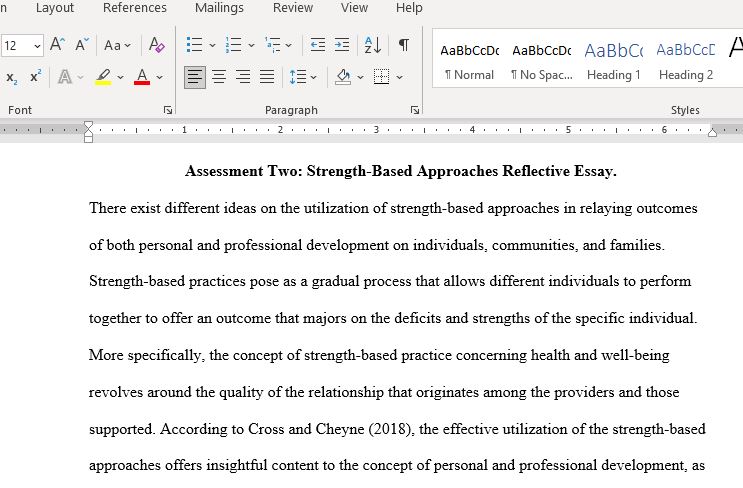Strengths Based Approaches
Assignment Topic: Strengths Based Approaches
Susan is a woman in her late 60s living alone since the death of her husband. Thomas and Susan had been married since she was 21. Susan is retired. She previously worked as a teacher at the local primary school, taking early retirement at 60 due to an increase in the severity of rheumatoid arthritis (diagnosed in her 30s) and a desire to spend more time with her retired husband.
The couple were known to the local authority due to Thomas’s physical health problems. Susan acted as his carer and, with additional support from Thomas’s personal assistant, continued working until retirement. Susan’s needs had been supported following a carer’s assessment, however her physical condition was never significant enough while her husband was alive to require a needs assessment in her own right.
Working with Others:Strengths Based Approaches
Assessment 1 : 2000 — 2500 words (this does not include the reference list)
Based on the case study scenario presented, answer the following question: How can a strength-based approach yield the best possible outcomes for Susan?
You must consider the following in your answers:
- Use of systems theory, in addition to other relevant theories, to help better understand this scenario.
- Any relevant policy or legislation that may affect the outcomes Of the scenario.
- Any strategies or approaches that could be used by professionals from both health and social care to support Susan and any other relevant persons in this scenario using a strength-based approach.
- The potential limitations and challenges Of using a strength-based approach in this scenario.
Answer Preview for Strengths Based Approaches
Access the full answer containing 2084 words by clicking the below purchase button

